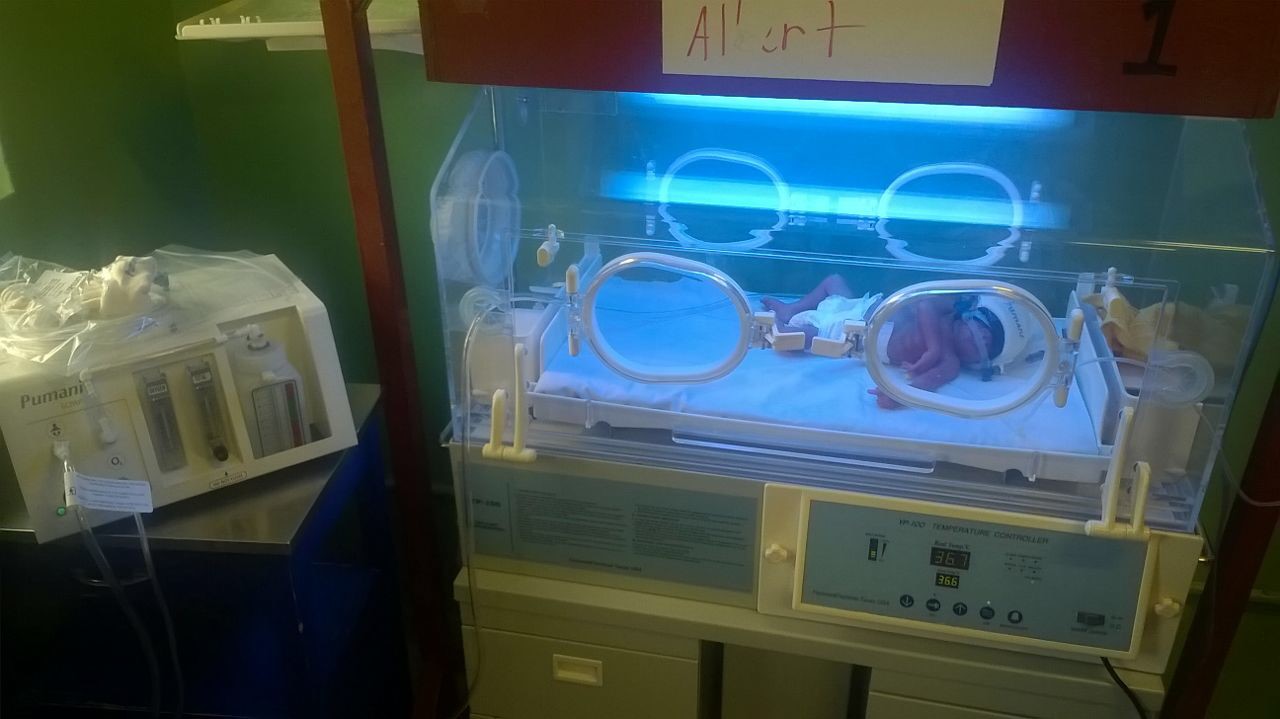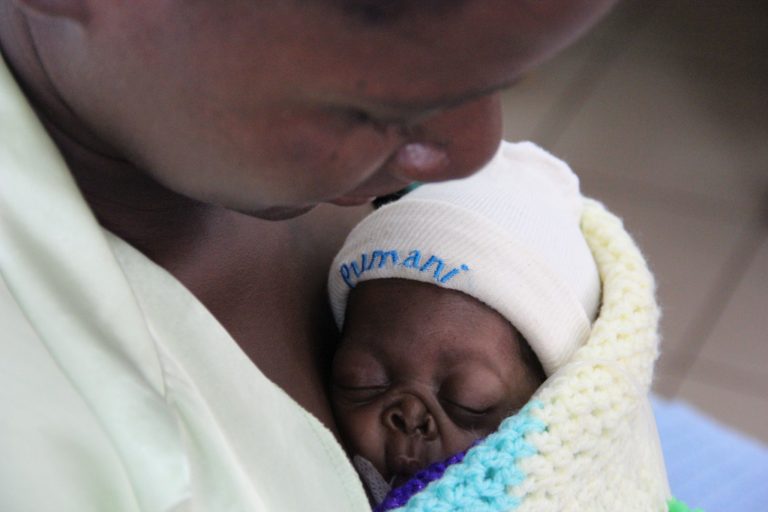Although many premature newborns in high-income countries receive respiratory support in the form of bubble continuous positive airway pressure (bCPAP) therapy, the majority of newborns in low-resource settings do not have access to such therapy.
Over the past six years, Hadleigh Health Technologies LLC has designed, developed, and is now distributing a low-cost bCPAP device, the Pumani® bCPAP. “Pumani” means “breathe restfully” in Chichewa, the language spoken in Malawi.
In 2012, clinicians at Queen Elizabeth Central Hospital in Blantyre, Malawi, bioengineers at the Rice 360 Institute, and neonatologists and respiratory therapists at Texas Children’s Hospital collaborated to evaluate the Pumani bCPAP. Results showed that the device can improve survival rates by 27% compared to standard oxygen therapy. Since 2013, Hadleigh Health Technologies and its partners have distributed over 170 Pumani bCPAP devices to all central, district, and mission hospitals in Malawi, covering 90% of the country’s public hospitals.
As part of Hadleigh Health Technologies’ mission to provide safe, effective medical devices to patients in low-income countries, the company partnered with Rice University to bring the Pumani to market. In 2015, the Pumani bCPAP was approved for sale in most African and Asian countries as well as in the European Union. After improving the Pumani design for over four years with clinical users in five countries, the commercial product is now available worldwide, costing only a fraction of other devices.
The Pumani has been sold to 35 hospitals, NGOs, and distributors in 20 countries, including 12 African nations. Users have included Médicins Sans Frontières in Pakistan and Haiti, the Centre for Infectious Disease Research in Zambia, USAID’s Maternal and Child Survival Program (MCSP) in Nigeria, the Maternal and Child Health Integrated Program (MCHIP) in Zimbabwe, Partners in Health in Malawi, and the Limpopo Initiative for Newborn Care in South Africa.

In addition to providing the devices and necessary accessories, Hadleigh Health Technologies also works with clinical users to develop and disseminate Pumani training programs.
Hadleigh Health Technologies continues to work with its customers and partners to make the Pumani accessible to more newborns in low-resource settings. In doing so, Hadleigh Health Technologies aims to make respiratory distress treatable and survivable for more premature newborns around the world.
For more information, please contact Hadleigh Health Technologies.
Photo credit (featured image): Rice 360.
|
|
By Jocelyn Brown, product manager, Hadleigh Health Technologies.As an undergraduate bioengineering student at Rice University, Jocelyn invented the Pumani bCPAP, a low-cost respiratory support device to help newborns in low-resource hospitals survive respiratory distress. |
|---|

